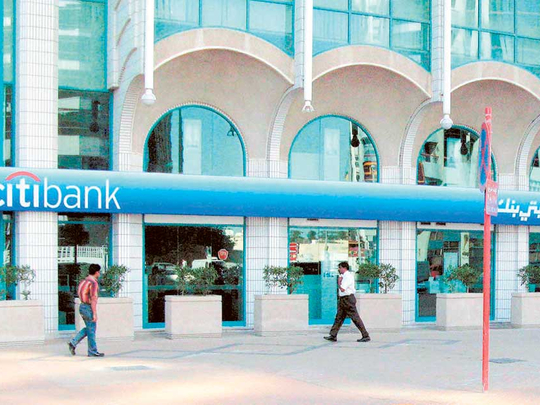
Dubai: Capital markets activity, particularly debt issuance and mergers and acquisitions are expected to pick up pace in the Gulf Cooperation Countries (GCC) next year in the context of low oil prices warranting regional governments to raise funds in the market, according to Citigroup officials.
“We expect to see growing business in the Middle East, particularly from the oil exporting countries where capital raising is picking momentum as both governments and private sector entities are raising funds to meet the funding shortage resulting from low oil prices. We expect to see a second consecutive year of record capital markets business from the region,” said Jim Cowles, EMEA CEO of Citi.
Citigroup along with HSBC and JPMorgan Chase & Co were joint global coordinators of the recent record $17.5 billion (Dh64.2 billion), Saudi Arabia bond issue, the biggest ever bond sale from an emerging-market nation.
The success of the Saudi bond deal which attracted $67 billion of offers is expected to help encourage more regional sovereigns, government related entities, private companies and financial institutions to sell bonds in the coming year, he said.
Citi analysts said the demand side of bond issuance from the region is expected be supported by yield-thirsty fixed income investors seeking to invest in high-grade GCC sovereign and corporate bonds while the supply side will be supported by sovereigns seeking to bridge budget deficits.
In 2016, apart from the record Saudi issuance, other prominent issuances included the $5 billion bond by the Abu Dhabi Government in April; $9 billion by the Qatar Government in May; and $3 billion by the Oman Government in June. All of these issuances were oversubscribed by the investors.
Low crude prices
Tight liquidity in the banking sector has increased fund raising demand from both regional banks and corporates to raise funds through both debt capital market and global loan syndication market. Deal flows are expected to rise from these segments in 2017.
“Low crude prices have triggered efforts towards spending cuts, privatisation and consolidation among state-owned firms. We expect to see demand for market funding growing from sovereigns, government related entities and the private sector in the year ahead,” said Cowles.
Lower equity valuations combined with the need to reduce overheads, many companies and government owned entities from the region are exploring M&A opportunities. Abu Dhabi said in June it plans to merge sovereign investment fund Mubadala Development Co with International Petroleum Investment Co. That followed a plan to combine its two largest lenders, National Bank of Abu Dhabi PJSC and First Gulf Bank. Investment banking circles indicate that more such transactions are in the pipeline.
The value of announced Mergers and Acquisitions [M&A] transactions with any Middle Eastern involvement reached $33.7 billion during the first nine months of 2015, 23 per cent more than the value registered during the same period in 2014 and marking the best annual start since 2010 according to estimates from Thomson Reuters and Freeman Consulting. Data showed that fees from completed M&A transactions totalled $177.6 million accounting for 37 per cent of the overall Middle Eastern investment banking fee pool, the highest first nine month share since records began in 1980.
Global investors
Citigroup projects about 30 per cent recovery in crude prices to above $60 a barrel in 2017. With the recent recovery in oil prices credit default swaps (the cost to insuring debt) of many oil exporters from GCC have improved and this is expected to attract global investors to regional debt instruments.
Overall, Saudi Arabia bond issue attracted about $67 billion from nearly 1,700 orders. The widespread demand enabled the government to reduce the bonds’ yields to below initial marketing levels. The 10-year bond was sold at a yield of 3.407 per cent, while the 30-year issue was sold at 4.623 per cent.











